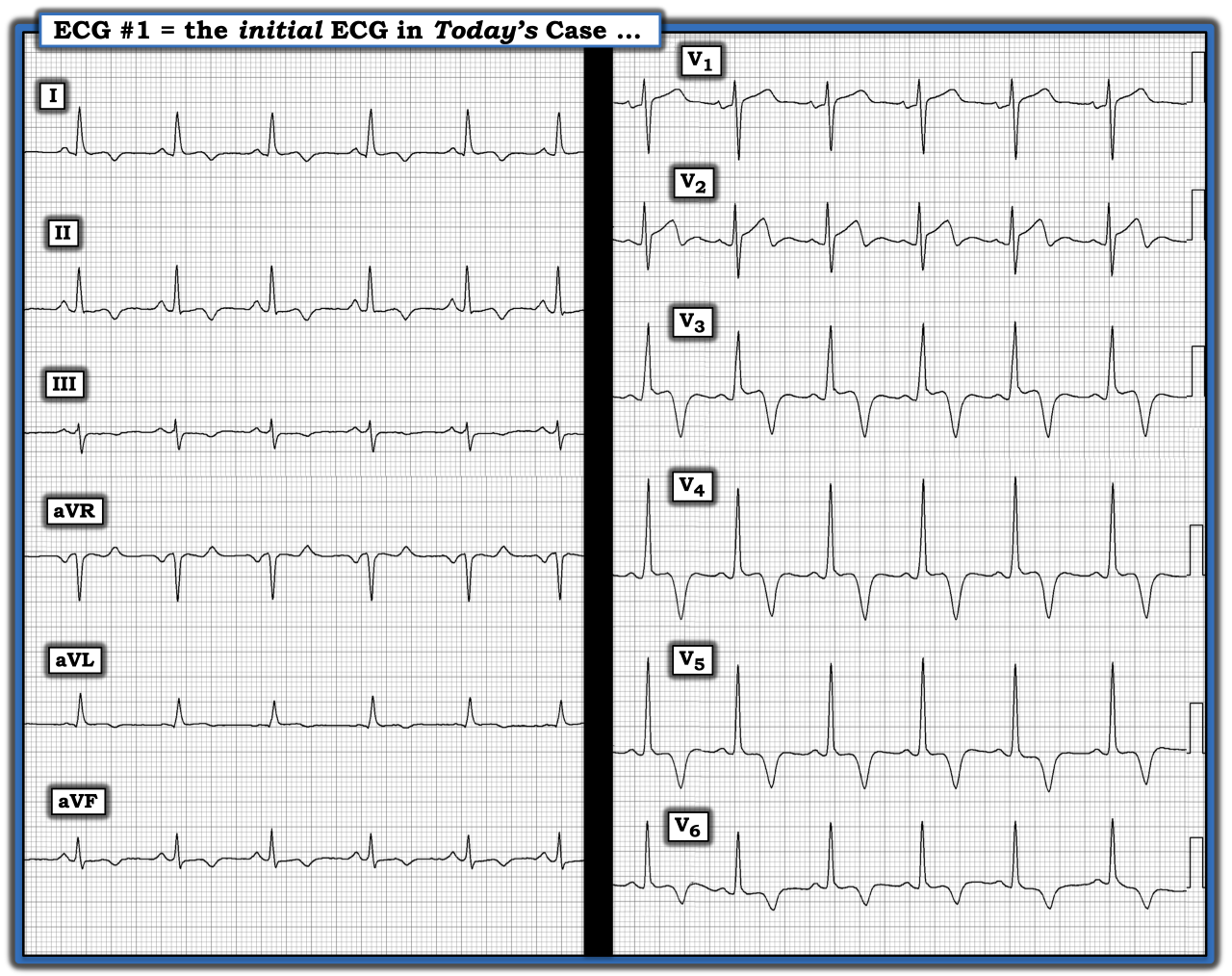By Ken Grauer, MD
Professor Emeritus in Family Medicine, College of Medicine, University of Florida
The ECG in the figure below is from a healthy young adult without symptoms. Clinicians recorded this ECG as part of the patient’s employment physical exam. Is the T wave inversion likely to be a normal variant?

The rhythm in this tracing is sinus at about 80 beats per minute. The PR interval is normal. The QRS is not wide. The QTc is, at most, no more than slightly prolonged. In view of the young age of this patient, there is no chamber enlargement (i.e., chest lead QRS amplitude often is greater in healthy young adults).
There are tiny, normal, “septal” q waves in high-lateral leads I and aVL. R wave progression reveals slight early transition, with an isoelectric QRS already by lead V2. There is some ST elevation in the anterior leads. But the most remarkable finding is the diffuse, symmetric T wave inversion seen in multiple leads.
Although this patient is a young and otherwise healthy adult, the tracing manifests more extensive ECG changes than those usually seen as a “normal variant.” It would help to know if the patient was a Black young adult man, as repolarization variants are seen more commonly in this demographic. It also would help to know if there was a personal history of syncope or presyncope and/or a positive family history of sudden death at an early age.
That said, the extent of the deep, diffuse T wave inversion in no less than 8/12 leads is unusual, and merits at least a formal echocardiogram to determine possible underlying structural heart disease (e.g., cardiomyopathy). Here, on follow-up, the initial echo raised concerns about some apical abnormality. Results of the subsequently ordered cardiac MRI are pending.
For more information about and further discussion of this case, please click here.
